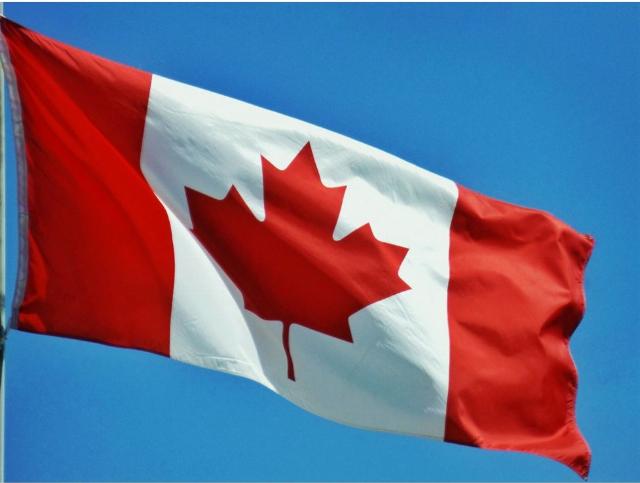Statehood for Canada is not a great idea
In 1982, the southernmost U.S. island city of Key West, Florida declared itself The Conch Republic in a semi-serious protest against the U.S. Border Patrol. At the other geographic extreme, will Canada become our northernmost state?
The matter is far more complicated than first meets the eye.
In the first place, we already have enough difficulty in keeping the United States united. A great many conservative residents of the eastern regions of Washington State and Oregon are seeking to secede from their respective states and to unite with Idaho. Similarly, the northern regions of California are seeking to formally detach from their state. There are also recurrent rumblings in Alaska and Texas for secession from the Union.
To further complicate things in the other direction, there have been suggestions (so far rejected) to make the territories of Puerto Rico and Guam states. (Even Washington, D.C. is not a state).
President Trump, being Trump, loves to throw ideas into the public domain, to see how they will come out in the wash. He has suggested making Canada our 51st state. In that spirit of taking the bait, I will add in my two cents.
Canada, (or, as KJP mispronounces it, Canadia) already repelled invasions by the U.S. during the War of 1812. The U.S., Canada and Britain have been allies ever since. There has been no further move to unify the three.
Although there would be advantages to both the U.S. and Canada in a merger, there would be great disadvantages as well. Canada would resist losing its identity as a nation, especially its constitution. Canada does not have our Second Amendment, and its laws on speech frequently conflict with our First Amendment.
Canada’s entrenched socialist institutions would not merge smoothly with the U.S., especially with what we call the red states, which tend to be far more conservative.
The Canadian Football League would be dominated by players from Louisiana. To preserve its dominance by Canadians, foreigners are presently restricted and limited by CFL rules, a discriminatory practice, illegal in the U.S., which prevents the CFL from expanding into the U.S.
Whatever advantages could be gained by annexation, they could be obtained without the disadvantages. Instead of statehood for Canada, there should be a treaty, under the concept of a “loose union.”
In 1964, the African nations of Tanganyika and Zanzibar formed such a union and later merged to become the nation of Tanzania.
Merging our two militaries would require years of gradual alignment. Even though Canadian and U.S. forces serve jointly in the NORAD (North American Aerospace Defense) treaty, and together in NATO, it would require a great deal of adjustment to restructure the Canadian armed forces. Military bureaucrats are a far more jealous faction than many people may think.
Canadian paper currency still bears the image of Queen Elizabeth II, and its coinage King Charles III. Merging the two monetary systems would be problematic.
On the other hand, economic cooperation can quickly be achieved, or should we say resumed. Oil pipelines can be reopened, for starters. We could trade in an arrangement similar to the European Common Market. The U.S. and Canada already share the cultural and political traditions of English Law, which helps greatly to avoid misunderstandings.
A more open border between Canada and the U.S. will be important but should not be fully implemented until both nations expel their illegal aliens and prohibit additional unlawful arrivals.
The election of President Trump has opened up exciting new possibilities for the Anglosphere, and for Christendom in general, and that is why we can now soberly discuss statehood for Canada and the annexation of Greenland from Denmark. The Panama Canal must be taken back from communist China. Eventually, all of Western civilization may enjoy a prosperous Pax Americana, thanks to Trump.
But let’s take it methodically, a step at a time.
Image via Pxhere.
FOLLOW US ON
Recent Articles
- Why Do Democrats Hate Women and Girls?
- There is No Politics Without an Enemy
- On the Importance of President Trump’s ‘Liberation Day’
- Let a Robot Do It
- I Am Woman
- Slaying the University Dragons
- Canada Embraces European Suicide
- A Multi-Point Attack on the National Debt
- Nearing the Final Battle Against the Deep State
- Now’s the Time to Buy a Nuke (Nuclear Power Plant, That Is)
Blog Posts
- So Milley was running the whole Ukraine war with Russia without telling the public -report
- New York’s ‘clean energy’ demands are unattainable, per industry’s own experts
- Astronauts carefully tell the truth
- California voters introduce new health care ‘access’ ballot initiative named after Luigi Mangione
- ‘American Oversight’? What a joke!
- Pete Hegseth in the line of fire—again
- Canadian Prime Minister Mark Carney is accused of plagiarizing parts of his Oxford thesis
- France goes the Full Maduro, bans leading opposition frontrunner, Marine Le Pen, from running for the presidency
- Bob Lighthizer’s case for tariffs
- An eye for an eye, an order for order
- Peace on the Dnieper?
- Tesla protestor banner: 'Burn a Tesla, save democracy'
- Pro-abortionists amplify an aborton protest's impact
- A broken system waiting to crash
- The U.S. Navy on the border







